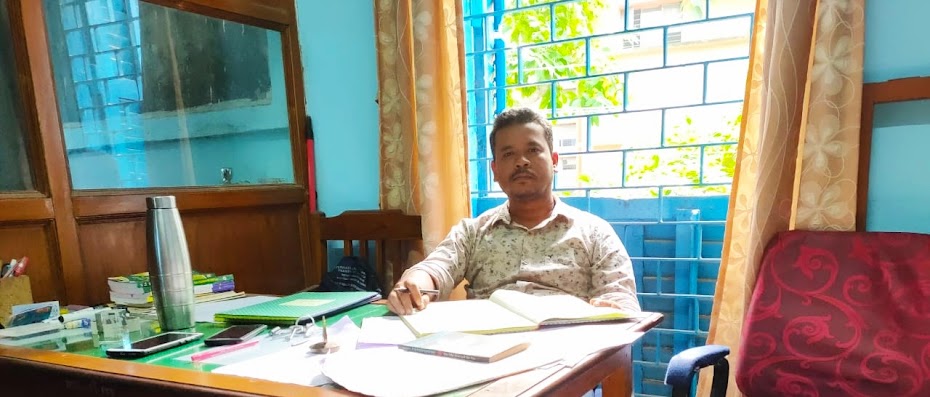Department of Comparative Literature and India Studies
English and Foreign Languages University Hyderabad
Is pleased to organize a
Three-day National Conference on
COMPARATIVE HUMANITIES: RE-CONFIGURING HUMANITIES ACROSS CULTURES
April 5-7, 2017
The history of humanities has always been a history of the expressions of knowledge derived from the European mind. Since the Hellenistic age to the contemporary times, the 'disciplines' that study human expressions concerning language, arts, music, theatre, history, logic, rhetoric and poetics have been governed and regulated by the European thought. What is termed as 'humanities' corresponds to the German geisteswissenschaften ['sciences of the spirit'], the Italian scienze umanistiche ['humanisitic sciences'], and the Dutch alfawetenschappen ['alpha sciences'] – all these terms refer to the knowledge and thoughts generated in Europe. Enlightenment and modernity stratified the studies under humanistic disciplines by rationalizing their content as applicable to all human kind. The modern European intellectual adventure established the different expressions of the European mind as constellations of knowledge to be pursued. Colonization played a very significant role in universalizing the disciplinary grid for the European thought. With the advent of Universities, and the departments of Humanities, the knowledge of the European mind started getting imparted as disciplines in the universities of the colonized and non-colonized countries.
Thus, the object of inquiry under humanities has suffered an 'a priori delimitation' that confines any investigation to the knowledge generated by the Greeks, the Romans, the French, the English, the Dutch or the Germans – in the name of Europe. Due to the Eurocentric thrust and the epistemic dominance of the occidental knowledge, the disciplines of humanities are taught in the universities with a lopsided and disproportional emphasis. This centrism comes for a scathing attack under some of the contemporary theorists. Derrida, calls for the emergence of "New Humanities" and "transformed Humanities" in his deconstructive essay titled "The Future of the Profession or the University without Condition". Derrida asserts his "faith" in a university where Humanities is taught without pre-conditions or pre-conceived notions about "that which is proper to man". Levinas too, in his philosophical explorations, has deliberated upon the epiphanic moment of "facing the other". For Levinas, cultures [just as self] should engage in the task of "Other-facing". As he writes, "[T]he Other faces me, puts me in a question, and obliges me". The significant lack with regard to the Western culture, Levinas highlights, is its inability to engage with its Other, intellectually and otherwise. In a similar vein, Bakhtin foregrounds the necessity of comparative dialogics that puts forth the idea of dialogue across cultures in terms of comprehending the humanistic insights derived from "utterances". In Bakhtin's view, dialogic utterances concerning languages, literature or arts always invite reciprocation. According to Bakhtin, "In order to understand, it is immensely important for the person who understands to be located outside the object of her/his creative understanding, in time, in space, in culture". Extended to the context of humanities, it is possible to locate the monologicity of the western humanities that have created a singular and unitary identity, thereby homogenizing the discourse by eliminating its dialogic potentialities.
The conference engages with this 'problematic of singularity' in the humanities with regard to teaching and research. It seeks to draw the attention of the intellectual community to this crisis of humanities in the non-European cultures. The state of humanities in Asia [India, in particular] will serve to demonstrate the lack of a comparative paradigm in terms of comprehending humanistic insights. Not only is Asian humanities not taught in the universities of the globe, but also Asian thinkers are, more often than not, classified as contributing to the orientalist paradigm generated by the west. Asian epistemology needs to be exhumed from the debris of colonial destructions and should be re-established in terms of a dialogic reciprocal relationship with the western humanistic paradigms. It is imperative for an Asian academic in the present intellectual scenario to evolve a comparative science of humanities by foregrounding the perspectives of the so-called 'Orient'. Another crucial concern would be to explore the possibility of a South-South dialogue of the human sciences.
The conference sets out to ask a few pertinent questions: what are the possible ways in which the humanities teaching and research can be re-configured in the Asian context today? Can the humanities in general be unraveled from particular locations of culture? What opportunities and modes can one draw on or bring forth for a transformative reception of epistemic singularities in rethinking the humanities today? Given that the primary task of the humanities is to unravel the modes of constituting the human (by engaging with the heterogeneous singular human reflections and their material articulations), what are the effective ways in which one can draw on cultural singularities to configure the question of being human today? Can the humanities teaching and research be experimental, and non-constative in orientation? What are the ways and means through which one can re-orient the university from its received politico-philosophical legacy of Europe? Also, one should hasten to add, can this reorientation be worked out without alibi, without yielding to the presumed sovereignty of any singular culture? Can the university receive unconditional thinking in the humanities – a thinking that is not devoted to gaining sovereign mastery through knowledge production?
The conference seeks to invite theoretical inquires on the following topics:
· Conceptualizing Asian epistemology
· Human Sciences of the East
· The Eastern reception and reciprocation
· The crisis of humanities
· Unconditional thinking and university pedagogy
· Comparative science of humanities
· Challenging colonial amnesia
· Comparative thought: what the west knows from the east
· Translating Humanities
· Conceptualizing Asian Art history and Musicology
· Conceptions of the human in Asian cultures
Important dates:
Last date for sending in the abstract: 3rd March, 2017
Selected paper-presenters will be notified by 8th March, 2017
Conference dates: 5-7 April, 2017.
Kindly send in a 500 word abstract to: eflucomplit2017@gmail.com
--
Thanks & Regards:
Abu Saleh
PhD Research Scholar @ Centre for Comparative Literature (CCL) 
